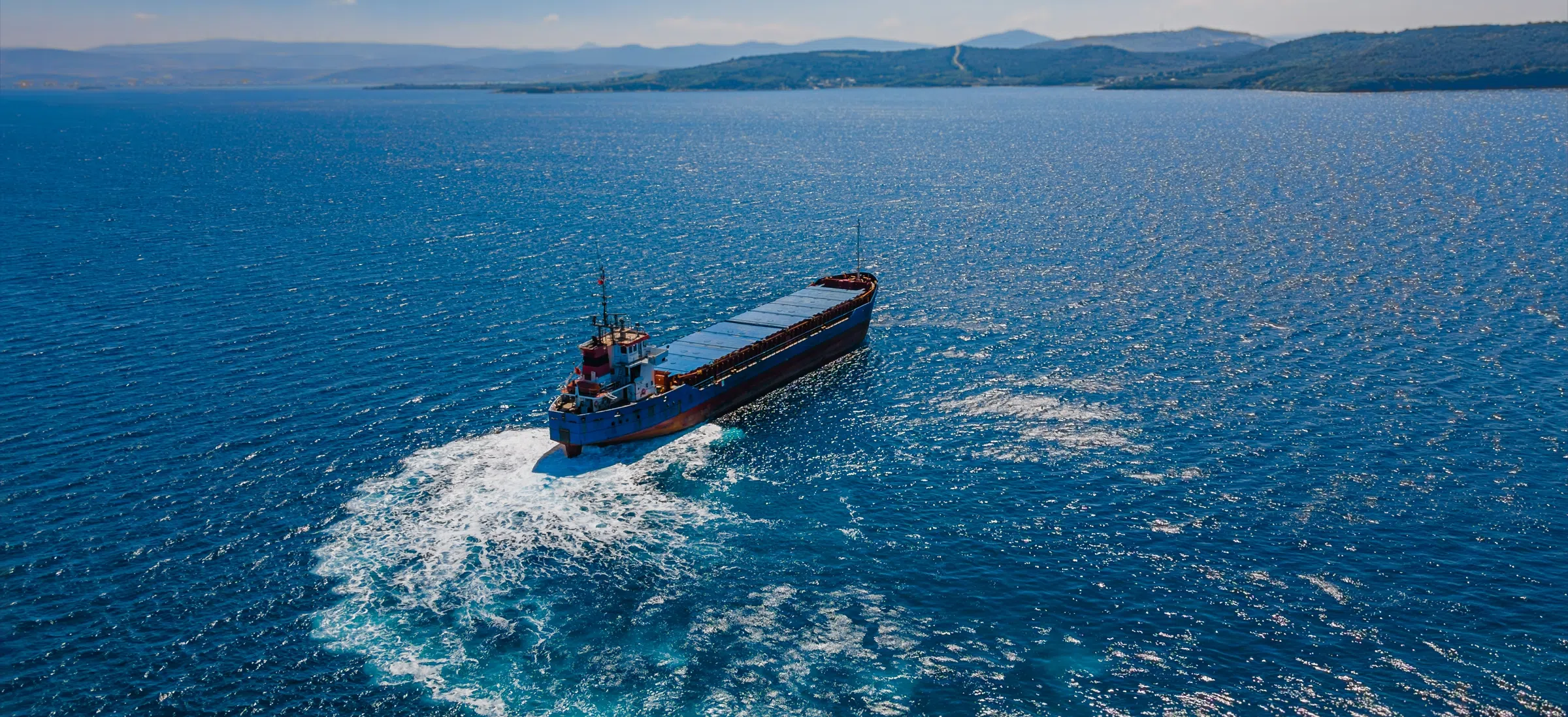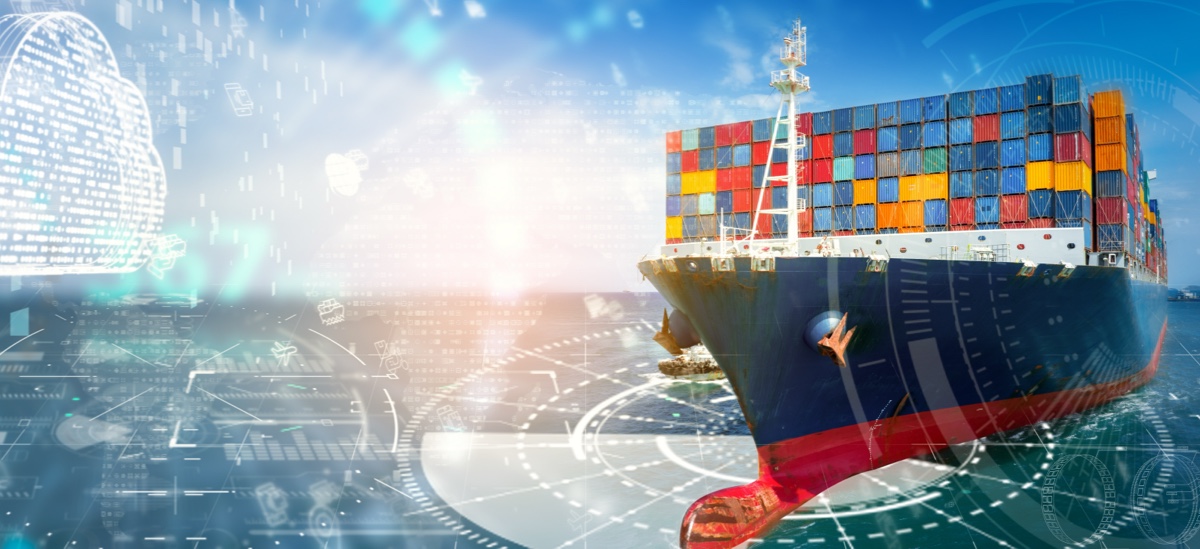The maritime shipping industry plays a pivotal role in global trade, connecting people and commodities across continents. Cargo ships are the lifelines of international commerce, transporting a significant portion of the world’s goods from distant shores to local markets. Given this crucial role, it’s no surprise that cargo ships and the broader maritime sector are among the leading contributors to global greenhouse gas (GHG) emissions, responsible for nearly 2.89% of global GHG emissions as of 2018, equivalent to about 1 billion metric tons of CO2 annually.
The industry has recognized GHG emissions as a serious concern and has taken action to ensure that its emissions are reduced per the IMO’s 2025 net-zero strategy. The IMO’s revised strategy plan from 2023 includes establishing a wide range of multi-national and cross-organizational programs and initiatives to make long-term emission reduction easier to implement. That said, reaching these ambitious goals will be extremely challenging, primarily since, according to the Sea Cargo Charter (SCC), global sea trade will most likely quadruple in scope by 2050.
Fuel Efficiency: A Cornerstone of Maritime Sustainability
Fuel efficiency is a central component of the maritime industry’s vision for a more sustainable future. Marine fuels are laden with greenhouse gases, including sulfur oxides and carbon dioxide, making fuel consumption a critical target for emissions reduction. Beyond environmental benefits, improving fuel efficiency offers economic advantages. Fuel costs can account for up to 53% of operational expenses for container vessels. As fuel prices rise, optimizing fuel use becomes a business imperative, directly impacting profitability.
The IMO and other regulatory bodies are actively introducing regulations that promote the transition from traditional fossil-fuel-heavy marine fuels to renewable, low-carbon alternatives. The European Maritime Safety Agency (EMSA), for example, has issued guidelines encouraging the adoption of sustainable fuels, marking a significant step toward greener maritime operations.
However, the shift to renewable fuels is far from straightforward. It involves substantial challenges, including the development and integration of new engine technologies, modifications to operational procedures, and the establishment of infrastructure for the production, storage, and distribution of biodegradable fuels. This global undertaking is further complicated by the need for ports to accommodate these changes, which can vary widely in their readiness and capabilities. While transitioning to low-carbon fuels is essential, a more immediate and cost-effective strategy is to optimize vessel operations, such as maneuvering and speed adjustments, to significantly reduce fuel consumption and emissions.
In line with this approach, DNV has identified and categorized a wide range of measures that can be taken to enhance operating efficiency and emphasizes the effectiveness of operational measures, which focus on optimizing existing equipment and systems, changing behaviors, and achieving substantial savings without major investments. For example, improving efficiency during maritime operations—both at sea and in port—can reduce power variation and excessive speed, often caused by unexpected maneuvers. This approach leverages existing infrastructure and is enhanced by modern technology, making it a practical and immediate solution.
How Maneuvering Strategies and AI Improve Fuel Use
Effective maneuvering strategies are essential for managing fuel consumption and reducing emissions in maritime operations. Inefficient maneuvers—such as sudden accelerations, excessive use of thrusters, or poor route planning—raise operational costs and undermine efforts to reduce the maritime sector’s carbon footprint. Challenges such as navigating in congested or low-visibility waters further exacerbate these issues by impairing situational awareness, making it difficult to detect hazards and avoid collisions promptly. Insufficient planning for enroute encounters often results in late reactions, abrupt course or speed changes, and increased fuel consumption.
Although some sources argue that navigation may impact carbon emissions in the maritime industry more than sudden maneuvering, it’s crucial to recognize that abrupt maneuvers and route changes still significantly affect fuel costs and engine power requirements. Optimizing all aspects of vessel operation, from route planning to port approaches and departures, is key to enhancing fuel efficiency.
Artificial intelligence (AI) plays a transformative role in this optimization, enhancing fuel efficiency in maritime. AI-based navigation systems utilize advanced algorithms to analyze navigational hazards in real-time, improving situational awareness and reducing the need for abrupt maneuvers. This, in turn, leads to lower fuel consumption and reduced operational costs.
A comprehensive study of over 50 million nautical miles of global commercial vessel data shows that AI’s ability to optimize routes and reduce travel distances by minimizing last-minute maneuvers can result in significant savings, potentially cutting fuel costs by around $100,000 per vessel annually. Additionally, AI’s analysis of large datasets reveals valuable patterns among maneuvering, fuel use, environmental conditions, and traffic, which enhances overall operational efficiency and supports more informed decision-making.
Maximizing Navigation Performance Through Organizational Commitment
A study from 2020 revealed that close-to-port maneuvering performed by qualified crew members can actually optimize maneuvering and thereby lower harmful emissions by up to 12.5%. This highlights that while technology is essential, it cannot achieve optimal results without the expertise of experienced seafarers. Effective reduction of fuel consumption and emissions requires a holistic approach that integrates both advanced technology and skilled human input.
The challenge extends beyond simply equipping seafarers with the latest tools. It involves comprehensive adoption across the entire organization, from the CEO to onboard operators. Integrating technology and ensuring commitment from all stakeholders in the supply chain are crucial for success.
Companies like Orca AI, which provide tools for both onboard and onshore use, play a vital role in shaping CO2 management practices. By promoting technology adoption throughout the organization and fostering collaboration among all levels, shipping companies can significantly enhance their operational efficiency and drive progress toward a greener, more sustainable future.










